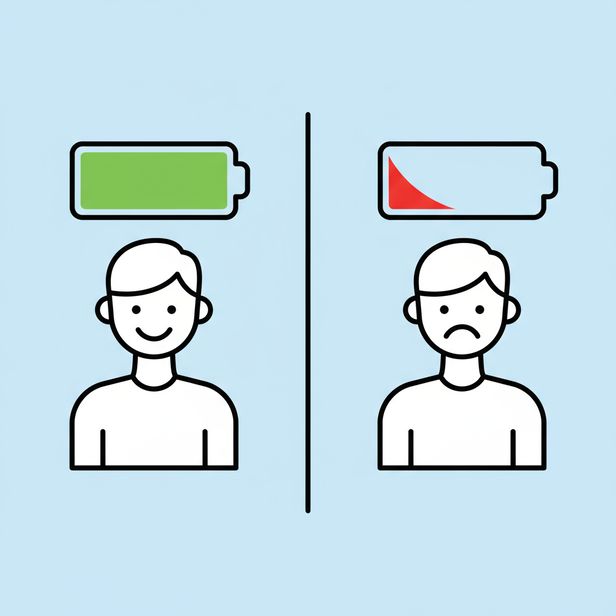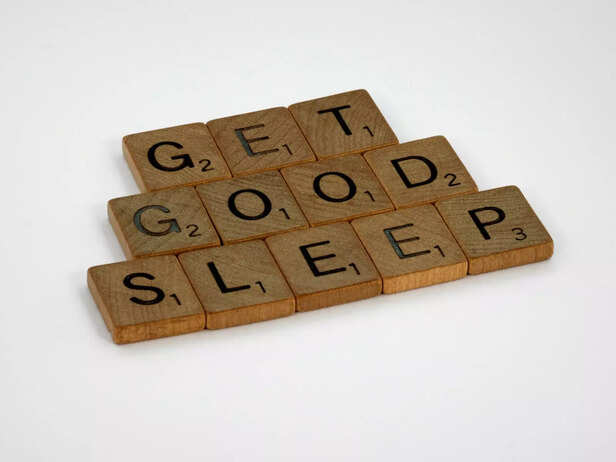You Think You Can Catch Up on Sleep, But Here’s the Truth
Megha Jangra | Sep 27, 2025, 08:08 IST
The Sleep You Need vs. The Sleep You Get
( Image credit : Pexels )
This article explores the concept of sleep debt and why weekend rest cannot undo the damage caused by weekday sleep deprivation. Drawing on scientific research, it explains how insufficient sleep impacts metabolism, mood, productivity, and long-term health. The piece also debunks the myth of weekend “catch-up sleep,” showing how disrupted circadian rhythms and chronic exhaustion persist despite longer weekend rest. Finally, it highlights cultural factors like hustle culture and emphasizes the importance of consistent, healthy sleep habits as the real path to recovery and performance.
“Sleep is for the weak” may sound like a motivational slogan, but science tells us otherwise. In our fast-paced world of deadlines, late-night scrolling, and endless responsibilities, sleep is often the first sacrifice. Many of us convince ourselves that we can “catch up” over the weekend by sleeping in. But does that really work? Scientists call this idea sleep debt, and research shows that it’s not as simple as paying off hours like money in a bank.

Sleep debt is the gap between how much sleep your body needs and how much you actually get. For instance, if your body requires 8 hours of rest but you’re consistently sleeping 6, you accumulate 2 hours of debt each night. By the end of a 5-day work week, that adds up to 10 hours. Unlike financial debt, though, this isn’t something you can easily repay. Sleep loss affects your body and mind in real time, and the consequences linger longer than we think.

Sleep is not just “rest.” It’s an active process where your brain and body repair, recharge, and regulate. During deep sleep, your brain clears out toxins, consolidates memories, and restores energy. Your body repairs muscles, balances hormones, and strengthens immunity. Losing even a few hours affects concentration, mood, metabolism, and long-term health. Studies link chronic sleep deprivation to obesity, diabetes, heart disease, depression, and even shortened lifespan.
Sleeping in on weekends might feel satisfying, but research shows it doesn’t fully reverse the effects of weekday sleep loss. A 2019 study published in Current Biology titled “Ad libitum Weekend Recovery Sleep Fails to Prevent Metabolic Dysregulation during a Repeating Pattern of Insufficient Sleep and Weekend Recovery Sleep” found that participants who restricted sleep during the week and then tried to recover on weekends still showed impaired insulin sensitivity and weight gain markers of poor metabolic health.
Another issue is that sleeping late on weekends disrupts your circadian rhythm, the body’s internal clock that regulates sleep and wake cycles. When you push your bedtime forward for two days, Monday morning feels even harder, creating what scientists call social jet lag. In other words, weekend recovery may give temporary relief but often makes the weekly cycle of exhaustion worse.


While you can’t fully erase chronic sleep debt with a couple of weekend naps, you can slowly restore balance with consistent habits. Think of it less as “repaying” hours and more as rebuilding a stable routine. Some tips include:
One reason sleep debt is so common is cultural. Hustle culture glorifies long hours and minimal sleep as signs of ambition. But the science is clear: consistently sacrificing sleep lowers performance. In fact, research shows that being awake for 17 hours straight impairs you as much as having a blood alcohol content of 0.05%. Push that to 24 hours, and your impairment is similar to being legally drunk. Productivity doesn’t thrive on less sleep it collapses.

The takeaway is simple but powerful: you cannot cheat biology. Weekend lie-ins may give a temporary sense of relief, but they don’t undo the long-term effects of weekday deprivation. The real solution is to respect sleep as an essential part of health, not an optional luxury.
Think of sleep as an investment rather than an expense. Just like you wouldn’t starve yourself all week and binge on food over the weekend, you shouldn’t deprive yourself of rest and expect recovery in two days. Consistency is key.
Sleep debt is a modern epidemic that many of us carry without realizing. The science shows that while occasional late nights are manageable, chronic weekday sleep loss cannot be “repaid” with weekend rest. True recovery comes only from creating healthy, regular sleep habits. So instead of trying to patch up exhaustion at the end of the week, it may be time to change how we live each day. After all, better sleep doesn’t just add hours to your week it adds quality to your life.
FAQs(Frequently Asked Questions):
What Is Sleep Debt?

When Exhaustion Wins
( Image credit : Pexels )
Sleep debt is the gap between how much sleep your body needs and how much you actually get. For instance, if your body requires 8 hours of rest but you’re consistently sleeping 6, you accumulate 2 hours of debt each night. By the end of a 5-day work week, that adds up to 10 hours. Unlike financial debt, though, this isn’t something you can easily repay. Sleep loss affects your body and mind in real time, and the consequences linger longer than we think.
Why Sleep Matters More Than You Think

Wired But Weary
( Image credit : Pexels )
Sleep is not just “rest.” It’s an active process where your brain and body repair, recharge, and regulate. During deep sleep, your brain clears out toxins, consolidates memories, and restores energy. Your body repairs muscles, balances hormones, and strengthens immunity. Losing even a few hours affects concentration, mood, metabolism, and long-term health. Studies link chronic sleep deprivation to obesity, diabetes, heart disease, depression, and even shortened lifespan.
The Weekend Fix Myth
Another issue is that sleeping late on weekends disrupts your circadian rhythm, the body’s internal clock that regulates sleep and wake cycles. When you push your bedtime forward for two days, Monday morning feels even harder, creating what scientists call social jet lag. In other words, weekend recovery may give temporary relief but often makes the weekly cycle of exhaustion worse.
How Sleep Debt Shows Up in Everyday Life

Finding Balance Beyond the Desk
( Image credit : Times Life Bureau )
- Brain Fog – Reduced focus, slower reaction times, and forgetfulness are common signs
- Mood Swings – Irritability, anxiety, or low motivation often stem from lack of rest
- Low Productivity – Sleep-deprived people take longer to complete tasks and make more mistakes.
- Cravings & Weight Gain – Sleep affects hunger hormones (ghrelin and leptin), leading to overeating.
- Weakened Immunity – Missing sleep makes you more vulnerable to colds and infections.
Paying Back Sleep Debt: Is It Possible?

The Foundation of Better Health
( Image credit : Unsplash )
While you can’t fully erase chronic sleep debt with a couple of weekend naps, you can slowly restore balance with consistent habits. Think of it less as “repaying” hours and more as rebuilding a stable routine. Some tips include:
- Prioritize Consistency – Aim to go to bed and wake up at the same time every day, including weekends.
- Micro-Recovery – Short naps (20–30 minutes) during the week can help refresh energy without disrupting night sleep.
- Build Sleep-Friendly Habits – Limit caffeine after late afternoon, reduce screen time before bed, and keep your sleep space dark and cool.
- Listen to Your Body – Fatigue, frequent yawning, or needing multiple alarms are signals that you’re not getting enough rest.
Rethinking Productivity and Rest
A Healthier Way Forward

Restoring Balance: Embracing Healthy Sleep
( Image credit : Pixabay )
The takeaway is simple but powerful: you cannot cheat biology. Weekend lie-ins may give a temporary sense of relief, but they don’t undo the long-term effects of weekday deprivation. The real solution is to respect sleep as an essential part of health, not an optional luxury.
Think of sleep as an investment rather than an expense. Just like you wouldn’t starve yourself all week and binge on food over the weekend, you shouldn’t deprive yourself of rest and expect recovery in two days. Consistency is key.
Final Thoughts
FAQs(Frequently Asked Questions):
- Is it possible to train your body to need less sleep?
Despite some beliefs, chronic reduction in sleep harms brain and body functions, and no amount of training can safely decrease your biological need for sleep. - Can naps fully compensate for lost nighttime sleep?
Naps provide temporary relief and can reduce feelings of fatigue, but they don't fully replicate the restorative processes of uninterrupted nighttime sleep. - Can exercise help mitigate the effects of sleep debt?
Regular physical activity can improve overall sleep quality and energy levels but cannot eliminate the negative effects of significant sleep deprivation.
